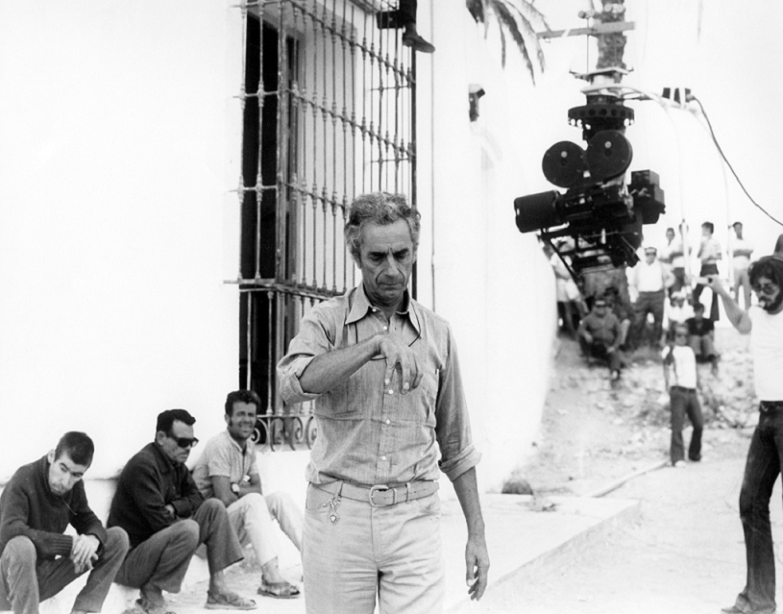Identity. What makes us into who we are? Is it the sum of our unique characteristics, our appearance, or our passports and social security numbers? The subject has been dealt with in various ways both recently (e.g. Fight Club) and further back in time (Vertigo, The Face of Another etc). Michelangelo Antonioni's "The Passenger" (Professione: reporter) from 1975 is an exceptionally successful and fascinating film on this particular theme.
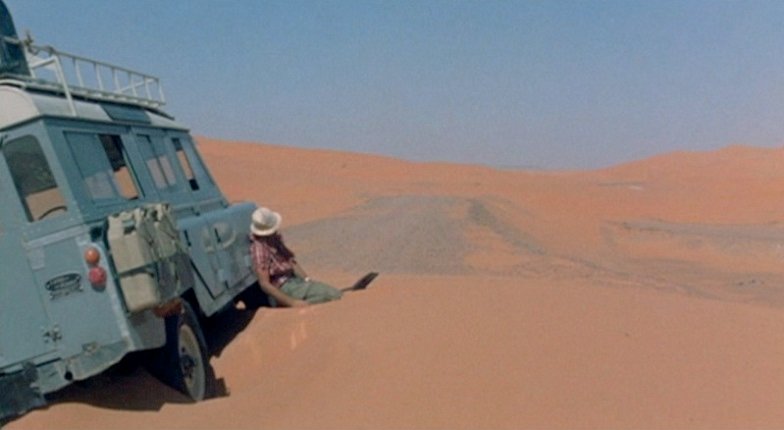
TV journalist David Locke (Jack Nicholson) is stationed somewhere in the Sahara region trying to obtain material for a documentary. When the story begins, he's feverishly searching for a way to the guerrilla hiding in the nearby mountains. He pays a young man to guide him there, but the mission fails. The emptiness of the desert literally swallows him and his jeep. Stuck with the wheels in the deep sand he's forced to return to the hotel without any interviews, exhausted and dejected.
The hotel, which is a simple stone building with a few rooms, doesn't seem to have many other guests. There is however one other person staying there, a man that David later find dead. In a flashback, we learn that the dead man is Robertson (Charles Mulvehill), that looks a lot like David, and that they've only met once before for a couple of drinks.
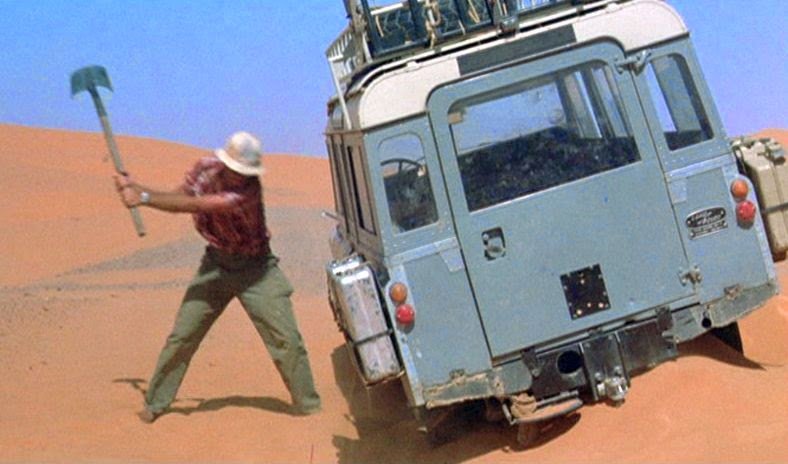
What follows is crucial for the development of the film. Locke is tired of his work, his marriage and his life, and gets a chance to start over. David Locke replaces Robert's passport photo with his own. He also moves the corpse to his own room, as well as switches clothes with him, and report that David Locke, the TV journalist, has died. An identity change has taken place. David also finds a notebook with specific dates and locations in Robertson's documents. Without hesitation, he assumes the identity and sets out on a dangerous and tumultuous journey through Europe. The seemingly carefree life of the business man can't possibly be worse than his own, can it?
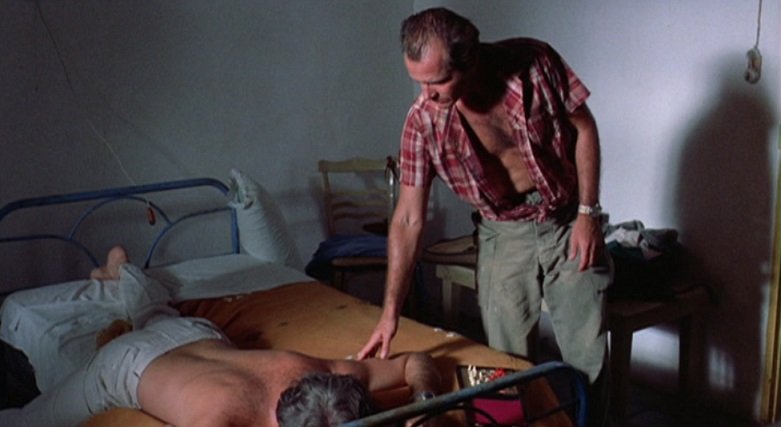
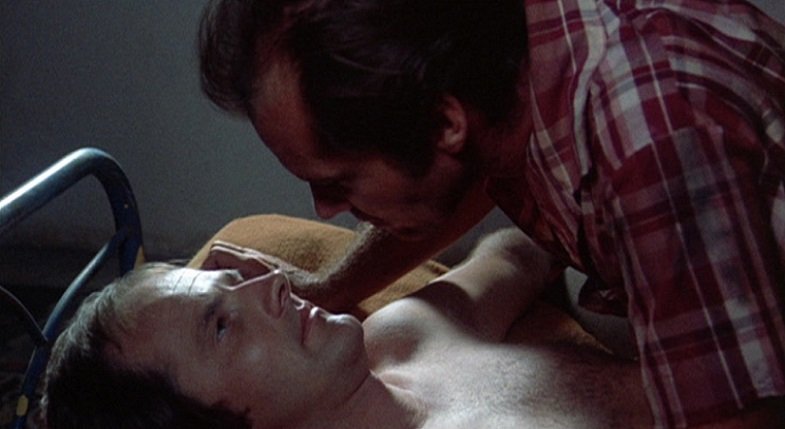
"…His problem is that he is a journalist – he can’t get involved in everything he reports because he’s a filter. His job is always to talk about and show something or someone else, but he himself is not involved. He’s a witness not a protagonist. And that’s the problem." - Michelangelo Antonioni
In London, Locke's wife Rachel (Jenny Runacre), who has been in an affair with another man, is reached by the news about the death of David. Torn by guilt she goes to see David's producer and together they begin to go through the earlier material that her husband sent from the Sahara region. While looking for a clue to what may have happened to him, an expanded picture of who he really is, is given, a background that becomes more than just a professional label.
In a Gaudí building in Barcelona David meets a young girl (Maria Schneider) who follows him on his journey to unravel his new identity, Robertson. On a balcony below are a couple is arguing loudly, while our two protagonists are still in the process of exploring each other for the first time. The entire building and space becomes an image of human relationships, where not all corridors necessarily lead to something good.
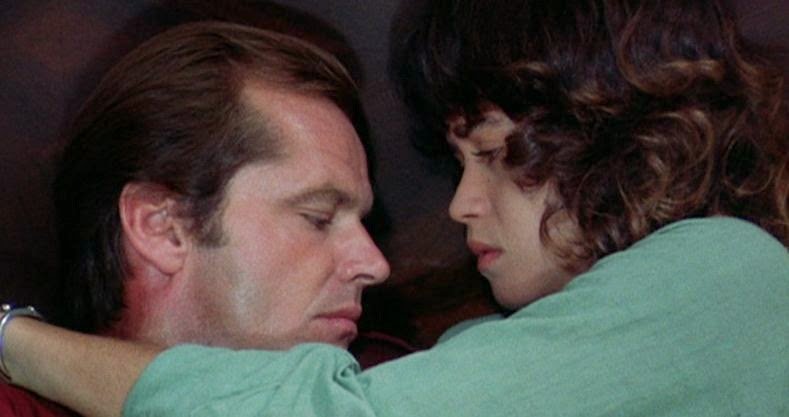
Like many other Antonioni films "The Passenger" is characterized by a deliberately slow pace, and in this case, it's highly justified. The slowness gives us time to reflect while we are waiting to find out what it is that David is chasing in the desert in the beginning of the film, and while we later look forward to find out what his new identity will bring him. The film is a hypnotic, enchanting and poetic thriller, and at the same time a road movie. One strength of the film and the manuscript is that you never really know where it will take you.
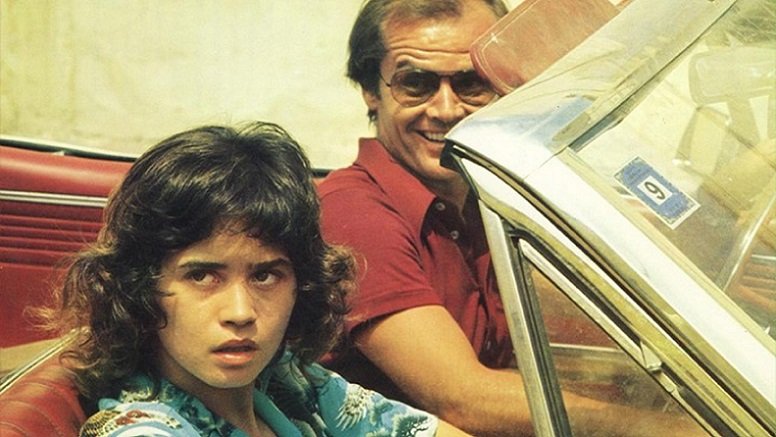
David Locke is a fascinating character, much thanks to the man playing him. It's a delight to see Jack Nicholson being this dimmed, subdued and restrained. In almost all other films with Nicholson the directors have chosen to use his patented ability to roar and be more or less manic. Here we see a different kind of acting, a quieter and more reflective side of one of today's major actors.
In an interview in 1983 Antonioni said that he wasn't fully satisfied with any of his previous films. "The Passenger" could have been his first perfect film, but the producers demands that the scenes should be narrowed down and the film shortened destroyed that possibility according to Antonioni. The version that I have seen is from Jack Nicholson's private archive and contains seven extra minutes that previously were cut out. If it's the version that the director considered to be perfect I don't know, but whatever it's a most impressive film.
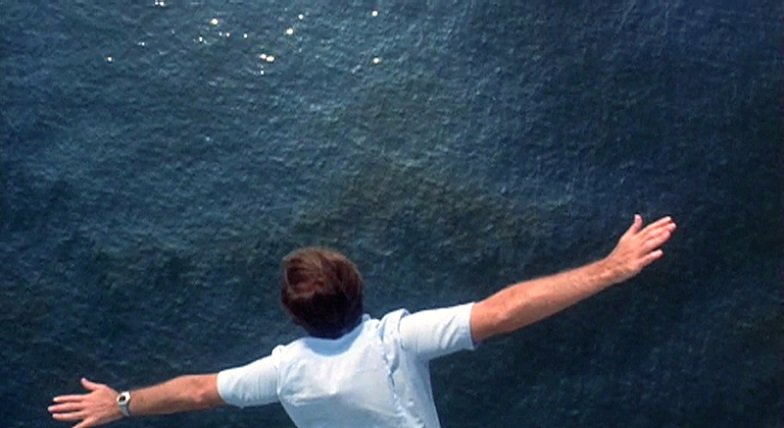
The images are commendably composed with heavily saturated colors and accompanied by a naturally recorded sound. The desert has never been portrayed as beautiful and at the same time so unreasonably frightening and barren. In many scenes the photo is utilized to give the story new and exciting dimensions. A particularly stunning scene is the final one, a seemingly impossible seven minute single shot where the camera somehow passes through a narrow set of bars in a hotel window. "The Passenger" stimulates the brain like few other films, and is a must for any serious cineaste.
